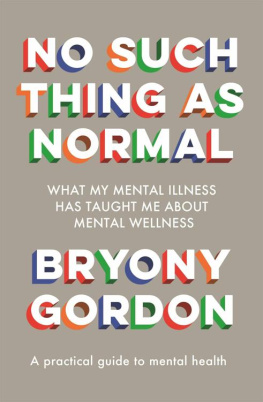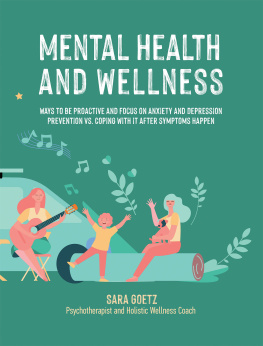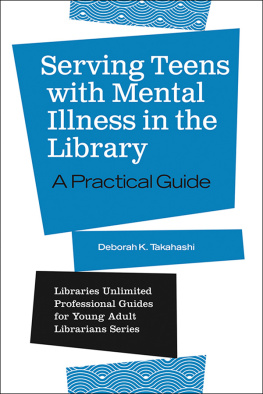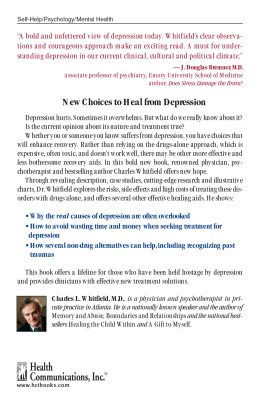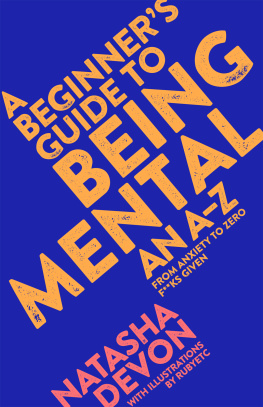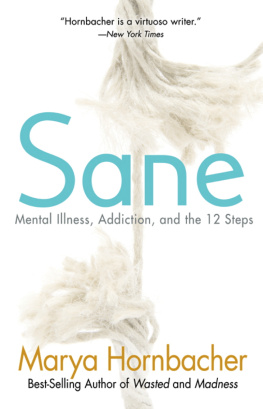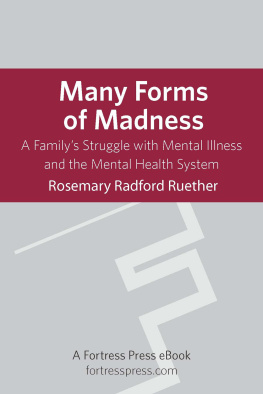The right of Bryony Gordon to be identified as the Author of the Work has been asserted by her in accordance with the Copyright, Designs and Patents Act 1988.
Apart from any use permitted under UK copyright law, this publication may only be reproduced, stored, or transmitted, in any form, or by any means, with prior permission in writing of the publishers or, in the case of reprographic production, in accordance with the terms of licences issued by the Copyright Licensing Agency.
First published as an Ebook in Great Britain by Headline Publishing Group in 2021
50 Victoria Embankment
London EC4Y 0DZ
www.headline.co.uk
www.hachette.co.uk
Contents
About the Author 
Credit: Pal Hansen
In the twenty years that she has worked for the Telegraph , Bryony Gordon has become one of the papers best-loved writers. She is the author of the bestselling The Wrong Knickers plus The Sunday Times Number One bestsellers You Got This and Mad Girl , which were both nominated for British Book Awards, and the current bestseller Glorious Rock Bottom . She is the presenter of the Mad World podcast and in 2016 she founded Mental Health Mates, now a global peer-support network which encourages people with mental-health issues to connect and get out of the house. In 2017 she won the MIND Making a Difference Award for her work in changing the perception of mental health in the media. She lives in South London with her husband and daughter, and their two guinea pigs.
Praise:
Bryony Gordon is a terrific, compassionate writer whose razor-sharp honesty slices through every sentence. Elizabeth Day
Thoughtful, honest, kind and inspiring, this barnstormingly brilliant book is the perfect guide for those that are struggling with mental illness. Dr Max Pemberton
Also by Bryony Gordon
Glorious Rock Bottom
You Got This
Eat, Drink, Run
Mad Girl
The Wrong Knickers
About the Book
Bryony Gordon is one of the UKs most high-profile and trusted mental health campaigners. In No Such Thing As Normal , she shares advice and guidance based on her own experiences of mental illness, which, far from damaging her, have left her stronger, wiser and more resilient.
Her sensible, practical advice guides you through the first steps towards getting well, with topics including:
The basics From sleep, food and drink to work and even breathing, understanding your relationship to these key parts of life is vital to addressing your mental health.
Asking for help Thinking about different types of therapy, medication and support options can be overwhelming. Knowing who to ask for help and how can make all the difference.
Worry Exploring day-to-day anxiety, stress and intrusive thoughts, Bryony tackles worry head-on and provides tools and tips for how to manage it.
Connection From the isolation of lockdown to the pain of recognising and ending toxic relationships, and also the comfort and sense of wellbeing that comes from supporting others, understand which connections are worth nurturing, and which you can let go.
The result is a lively, honest and direct guide to mental health that shows how each of us can feel stronger, calmer and a little bit less alone.
To anyone working tirelessly in mental health,
even when it sometimes threatens your own.
Introduction
The End of the World
I n March 2020, it became clear to me that the world was ending. Or, at the very least, that the world as we knew it was ending. I have, in truth, been predicting the end of the world since I was about nine years old, when my mental ill health first manifested itself as an obsessive worry about nuclear war, fire and wide-scale flooding. You know all those normal worries you have as a child. As I got older and moved into adulthood, it became clear that this anxiety about the world ending was not going anywhere: if anything, it was just getting worse, and I seemed to live in a perpetual cycle of Armageddon. There was no issue too small for my mind to latch on to and feed until it became a cause of intense, apocalyptic anxiety. Texting someone and not hearing back was never just a sign that they were busy it was evidence that I had done something terrible without realising it, and had now been excommunicated. A telling-off from a boss because I had missed a deadline was never just a simple telling-off it was a sign that I was about to be sacked. A woozy feeling was never just a woozy feeling it was probably a heart attack, or a stroke, or carbon monoxide poisoning. People often talk about the world being on fire. Sometimes, I felt as if my skin was, too.
I was in a constant state of emergency, sheltering in place 24/7 from the catastrophic death scenes playing out in my head. Some people prep for crisis by stockpiling canned food or building underground bunkers. I did it by comprehensively stockpiling information on all the ways in which I was a fuck-up, and keeping that information in the underground bunker of my brain, so that I was always primed and ready for the inevitable end of my world. My world was going to end because I was secretly a serial-killing paedophile who had blanked out my crimes in horror. (I wasnt, but I had a common although rarely talked about form of OCD known as Pure O, which made me think I was.) My world was going to end because my hair wouldnt stop falling out. (I had alopecia.) My world was going to end because my boyfriend was going to leave me, and how could I survive without him? (I was in an abusive relationship.) My world was going to end because I didnt look the way I thought I was supposed to look. (I was bulimic.) My world was going to end because I couldnt stop drinking or taking drugs. (I was an alcoholic and an addict.) My world was going to end because surely my child was going to be taken away from me. (I was still an alcoholic and an addict.) My world was going to end because I couldnt bear it, because I could not get out of bed and live in it any more, because it was too painful and, although I was terrified of death, I was, by now, more terrified still of living.
Its somewhat ironic, then, that by the time the world as we know it actually began to end, I was no longer plagued by apocalyptic thoughts, and was even rather enjoying life. I barely thought about ways in which the world might end at all I was too busy enjoying its continuing spin.
In March 2020, when the new coronavirus was announced by the World Health Organization as a pandemic and the entire planet started to shut down, bit by bit, as this terrifying disease travelled towards us almost in slow motion, I was, bizarrely, in a good place. I had, in the words of my therapist, done the work (more about this later) even though, at times, I hadnt a clue that I was doing it (does wailing into the wind count as doing the work? Apparently so). I was two and a half years sober. I attended three or four twelve-step meetings a week. I saw my counsellor from rehab regularly. I had carved out an accidental life as a mental health campaigner, writing and talking about the things that made me feel bad in the hope that it might make other people feel good. And I knew that, through decades of feeling like I was losing my mind, I had, miraculously, found it. It wasnt always pretty. It was sometimes incredibly messy. But it was there , and I felt that I had studied every synapse of it through the work I had had to do to get better.

